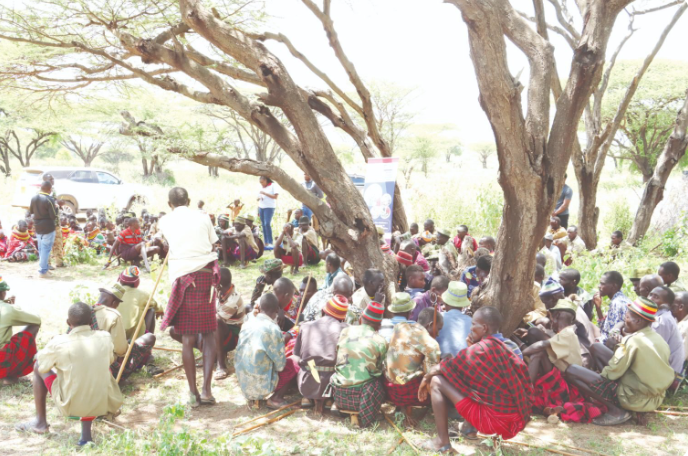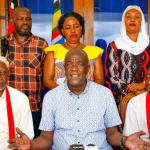More than a decade later, the memory of the tragic ambush that claimed the lives of 42 police officers in Suguta Valley, Baragoi, Samburu County, remains vivid among the residents of Lomerok.
The notorious valley is a refuge for armed bandits who thrive in the rugged terrain, making it difficult for police to counter their attacks due to the challenging landscape, poor communication networks, and the bandits’ use of advanced weaponry.
The ambush occurred when bandits, hidden in the dense thickets, attacked police officers traveling in a lorry as they tracked cattle believed to have been stolen from local herders. In the 2012 attack, at least 42 officers were killed after their truck was riddled with bullets, allowing the bandits to escape.
Following this devastating assault, the government deployed military personnel to pursue the attackers and recover the stolen livestock, which led to the displacement of over 10,000 people who feared being disarmed.
Villages like Lomerok, Marti, Kalele, Lokorkor, and Muruakiring in Samburu North Constituency have become synonymous with insecurity. Over the years, residents have lived in constant fear as bandits continue to defy combined security forces, launching attacks that result in deaths, livestock theft, and disruptions to the region’s economy.
During these conflicts between herders and bandits, women have borne the brunt of the violence, often left to starve in the villages while their husbands pursue the attackers. In some cases, children have died from hunger, and women have succumbed to complications during childbirth due to the lack of medical facilities in the area.
However, the past two years have seen an unexpected calm in the once volatile region, thanks to peace-building efforts led by USAID Nawiri and the local administration. At the base of Inyalabet Mountain, locals gather at a community ground in Marti for a meeting organized by long-serving Chief William Napei to assess their progress as a community. These residents, who fled from Lochola in search of pasture and water, have been living peacefully in the area.
Etoout Nakinawi, a 59-year-old female peacemaker, shared that the opportunities provided to the locals have quieted the conflict between bandits and herders, allowing the community to enjoy a fragile peace over the past two years.
Through a comprehensive approach that addresses resource-based conflict and natural resource management, USAID Nawiri has helped the communities shift from violence to cooperation, bringing renewed hope to the region.
At the core of the transformation in Samburu North has been the strategic implementation of controlled grazing patterns, crucial for sustainable rangeland management in pastoralist communities. By regulating livestock movement and enforcing rotational grazing, these practices help prevent overgrazing, allowing vegetation to recover and reducing land degradation.
Locals report that this structured approach has promoted the regeneration of natural resources, improving biodiversity, soil fertility, and water retention. As a result, healthier grazing lands now provide more nutritious forage, enhancing livestock health and productivity, which boosts the economic well-being of pastoralists.
“The use of grazing patterns has also played a vital role in reducing conflict over scarce resources like pasture and water. Here in Samburu North, such practices have fostered peaceful coexistence between us and our neighboring communities,” said Etoout Nakinawi.
John Wahome, a Peace and Natural Resources Management officer for USAID Nawiri, highlighted that the most impactful intervention has been the enforcement of grazing patterns through hybrid committees made up of key community members.
He explained that elders play a critical role in enforcing strict rotational grazing measures, allowing grass and browse to regenerate as livestock move systematically throughout the year.
“This structured approach has significantly reduced conflicts between neighboring Samburu and Turkana communities, promoting more organized grazing,” Wahome noted.
He also shared that the grazing patterns, enforced by hybrid committees consisting of respected elders and leaders from the Samburu, Turkana, and Pokot communities, ensure that no illegal grazing occurs without prior approval. This preservation of fragile rangelands minimizes resource competition, which often led to violence in the past.
Chief William Napei, who has been instrumental in ensuring adherence to the grazing rules, revealed that any herder who violates the agreement is fined a cow, which is then slaughtered and feasted upon by the peacekeepers to reinforce the importance of the rules.



